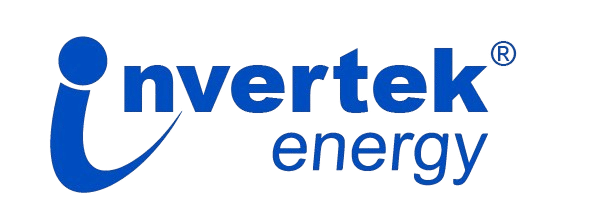Sustainability is important today. Solar energy is a popular choice for people and businesses that care about the environment. But what if you could combine the best features of both off-grid and on-grid systems? Enter the hybrid solar inverter. This innovative technology promises to deliver the ultimate balance of energy independence and connectivity.
Solar Energy Solutions A Quick Overview
Solar energy solutions have grown rapidly over the past decade, offering diverse options for harnessing the sun’s power. Off-grid solar systems let users work without traditional energy sources. On-grid systems connect solar power to current electricity grids. However, each system has its limitations, prompting the need for a more versatile solution.
What is a Hybrid Solar Inverter?
Definition and Functionality
A hybrid solar inverter is a device that seamlessly integrates solar power with grid electricity. It acts as a bridge between off-grid and on-grid systems, enabling users to enjoy the benefits of both. By storing solar energy in batteries, it ensures a continuous power supply even when the sun isn’t shining and allows for the export of excess energy back to the grid.
Key Components
-
1. Solar Panels: Capture sunlight and convert it into electricity.
2. Batteries: Store excess solar energy for later use.
3. Grid Connection: Provides backup power when solar energy is insufficient.
Role of Hybrid Inverters
The primary role of a hybrid inverter is to efficiently manage power distribution. It intelligently switches between solar, battery, and grid power, ensuring optimal energy usage and minimizing reliance on the grid.
Off-Grid Solar Inverter Independence from the Grid
Explanation
An off-grid solar inverter allows users to be completely independent of the electricity grid. This system is ideal for remote areas where grid connectivity is limited or nonexistent. By utilizing solar panels and batteries, off-grid inverters provide a reliable energy source.
Benefits for Remote Areas
- Energy Independence: Users can generate and store their own electricity.
- Cost Savings: Eliminates the need for costly grid extensions.
- Reliability: Ensures uninterrupted power supply, even during grid outages.
Working Without Batteries
An off-grid solar inverter without batteries is helpful in places with consistent sunlight. It allows you to use energy from the solar panels immediately during the day.
Situations Where Off-Grid Systems Shine
- Rural and remote areas
- Eco-friendly homes and communities
- Temporary installations like camping sites
On-Grid Solar Inverter Optimizing Grid Connection
Overview
On-grid solar inverters, also known as grid-tied inverters, connect solar panels directly to the electricity grid. They allow users to utilize solar power while remaining connected to the grid for backup.
Benefits of Grid Connection
- Backup Power: Ensures a continuous power supply, even when solar generation is low.
- Energy Export: Enables the sale of excess solar energy back to the grid.
- Reduced Electricity Bills: Cuts costs by reducing reliance on grid electricity.
Role in Urban Areas
In urban settings, on-grid systems are ideal due to the availability of grid infrastructure. They provide a sustainable energy solution while maintaining access to traditional power sources.
On-Grid Off-Grid Hybrid Solar Systems
Hybrid solar inverters take the best of both worlds by combining on-grid and off-grid solar capabilities. Users can enjoy reliable power supply, reduce energy bills, and contribute to a sustainable future.
Solar and Grid Hybrid Systems The Best of Both Worlds
Explanation
Solar and grid hybrid systems offer a flexible and reliable energy solution. By integrating solar panels, batteries, and grid connectivity, they ensure a consistent power supply while maximizing energy efficiency.
Flexibility and Reliability
Hybrid systems adapt to varying energy needs. They prioritize solar energy, utilize stored battery power when needed, and draw from the grid as a last resort.
Power Management and Energy Storage
Hybrid inverters excel in power management by intelligently distributing energy resources. They optimize energy storage, ensuring batteries are charged efficiently and used effectively.
Reducing Electricity Bills
With a hybrid system, users can significantly reduce electricity bills by leveraging solar energy. The ability to sell excess power back to the grid provides additional financial benefits.
On-Grid Solar System vs Off-Grid Key Differences
Detailed Comparison
Understanding the differences between on-grid and off-grid systems is crucial:
- On-Grid systems are connected to the electricity grid, providing backup and the option to sell excess power.
- Off-Grid systems operate independently, relying solely on solar panels and batteries.
Pros and Cons
- On-Grid Pros include reliability and lower upfront costs, but they rely on grid availability.
- Off-Grid Pros offer energy independence, but they require battery investments.
Cost, Maintenance, and Scalability
- Cost: On-grid systems have lower initial costs, while off-grid systems may require higher investments.
- Maintenance: Off-grid systems require regular battery maintenance.
- Scalability: On-grid systems are easily scalable with grid infrastructure.
Hybrid Solar Inverter in India Growing Popularity
Why Gaining Traction
Hybrid solar inverters are gaining popularity in India due to increasing energy demands and a focus on sustainability. They offer a reliable solution for balancing energy needs in urban and rural areas alike.
Government Policies and Trends
Government incentives and policies supporting solar energy adoption have spurred the growth of hybrid inverters. The Indian government’s commitment to renewable energy aligns with the benefits of hybrid systems.
Choosing the Right Hybrid Solar Inverter Factors to Consider
Key Considerations
Selecting the right hybrid solar inverter involves evaluating several factors:
Capacity: Ensure the inverter can handle your energy needs.
- Battery Storage: Choose an inverter compatible with your preferred battery type.
- Compatibility: Verify compatibility with existing solar panels and grid connections.
Making the Right Choice
Deciding between on-grid and off-grid options depends on your energy goals, location, and budget. Evaluate your energy consumption patterns and long-term sustainability objectives.
Warranties, Maintenance, and Installation
Factor in warranties and after-sales support when selecting an inverter. Professional installation ensures optimal performance and longevity
Conclusion
Summary of Benefits
Hybrid solar inverters combine the benefits of on-grid and off-grid systems. They provide flexibility, reliability, and energy efficiency. They empower users to harness solar production power while maintaining grid connectivity.
Final Thoughts
For those looking to enhance energy independence and promote sustainability, hybrid solar inverters are a compelling choice. By combining the strengths of both systems, they pave the way for a greener and more resilient energy future.
Explore the potential of hybrid solar inverters to revolutionize your energy consumption and contribute to a sustainable tomorrow.


